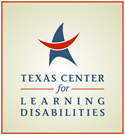Organization: National Center on Intensive Intervention
NCII provides a series of reading lessons to support special education instructors, reading interventionists, and others working with students who struggle with reading. These lessons, adapted with permission from the Florida Center for Reading Research and The Meadows Center for Preventing Educational Risk, address key reading and prereading skills and incorporate research-based instructional principles that can help intensify and individualize reading instruction. The reading lessons are examples of brief instructional routines that may be used to supplement reading interventions, programs, or curricula that are currently in place. These lessons are designed to illustrate concepts and supplement, not supplant, reading instruction and interventions for struggling readers. They do not represent an exhaustive reading curriculum. Teachers are expected to customize these lessons to meet the needs of their target students.
https://intensiveintervention.org/intervention-resources/literacy-strategies
